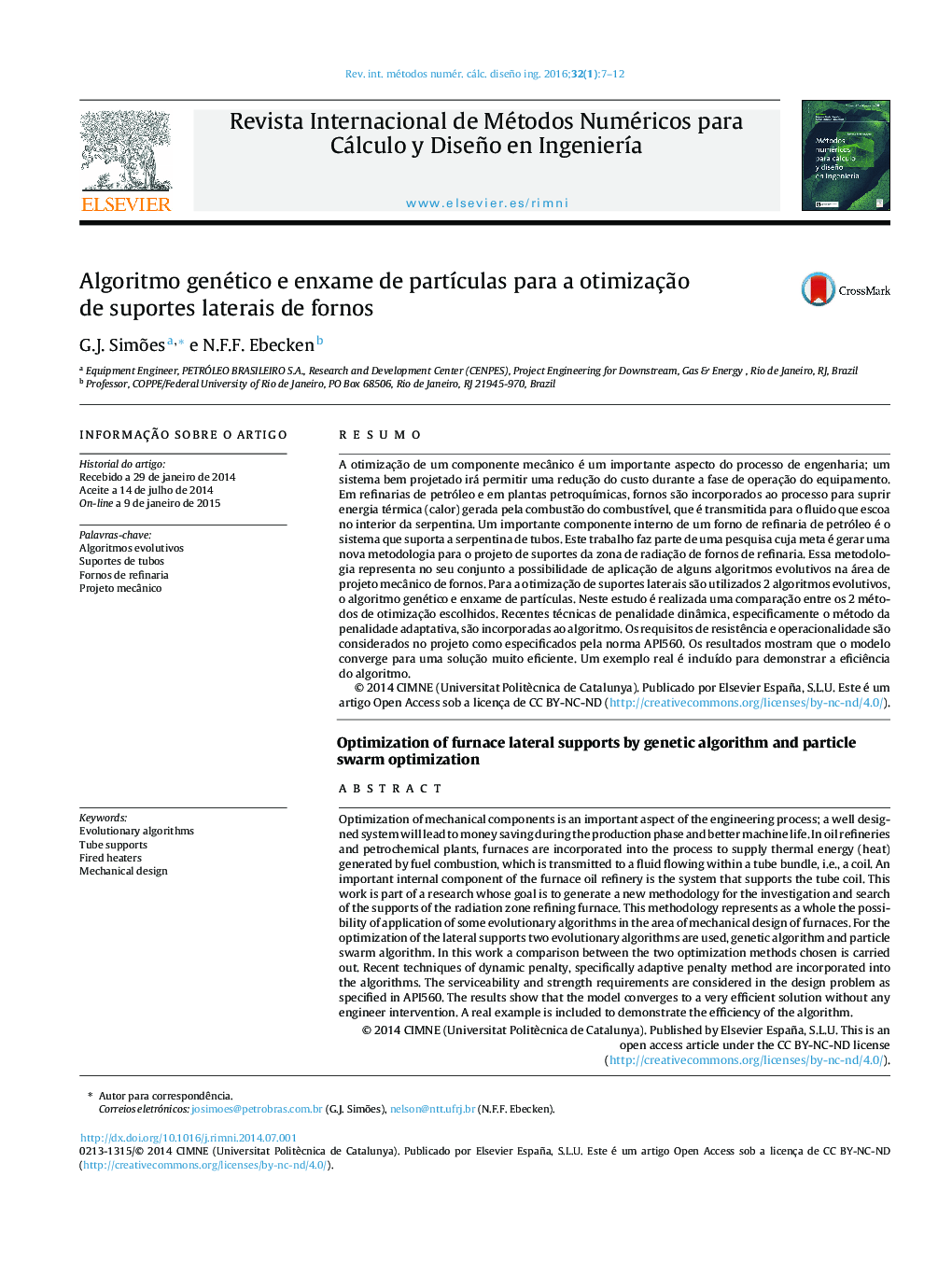| Article ID | Journal | Published Year | Pages | File Type |
|---|---|---|---|---|
| 1702469 | Revista Internacional de Métodos Numéricos para Cálculo y Diseño en Ingeniería | 2016 | 6 Pages |
ResumoA otimização de um componente mecânico é um importante aspecto do processo de engenharia; um sistema bem projetado irá permitir uma redução do custo durante a fase de operação do equipamento. Em refinarias de petróleo e em plantas petroquímicas, fornos são incorporados ao processo para suprir energia térmica (calor) gerada pela combustão do combustível, que é transmitida para o fluido que escoa no interior da serpentina. Um importante componente interno de um forno de refinaria de petróleo é o sistema que suporta a serpentina de tubos. Este trabalho faz parte de uma pesquisa cuja meta é gerar uma nova metodologia para o projeto de suportes da zona de radiação de fornos de refinaria. Essa metodologia representa no seu conjunto a possibilidade de aplicação de alguns algoritmos evolutivos na área de projeto mecânico de fornos. Para a otimização de suportes laterais são utilizados 2 algoritmos evolutivos, o algoritmo genético e enxame de partículas. Neste estudo é realizada uma comparação entre os 2 métodos de otimização escolhidos. Recentes técnicas de penalidade dinâmica, especificamente o método da penalidade adaptativa, são incorporadas ao algoritmo. Os requisitos de resistência e operacionalidade são considerados no projeto como especificados pela norma API560. Os resultados mostram que o modelo converge para uma solução muito eficiente. Um exemplo real é incluído para demonstrar a eficiência do algoritmo.
Optimization of mechanical components is an important aspect of the engineering process; a well designed system will lead to money saving during the production phase and better machine life. In oil refineries and petrochemical plants, furnaces are incorporated into the process to supply thermal energy (heat) generated by fuel combustion, which is transmitted to a fluid flowing within a tube bundle, i.e., a coil. An important internal component of the furnace oil refinery is the system that supports the tube coil. This work is part of a research whose goal is to generate a new methodology for the investigation and search of the supports of the radiation zone refining furnace. This methodology represents as a whole the possibility of application of some evolutionary algorithms in the area of mechanical design of furnaces. For the optimization of the lateral supports two evolutionary algorithms are used, genetic algorithm and particle swarm algorithm. In this work a comparison between the two optimization methods chosen is carried out. Recent techniques of dynamic penalty, specifically adaptive penalty method are incorporated into the algorithms. The serviceability and strength requirements are considered in the design problem as specified in API560. The results show that the model converges to a very efficient solution without any engineer intervention. A real example is included to demonstrate the efficiency of the algorithm.
